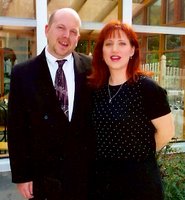What's Prayer Got To Do With It?

"You ask and do not recieve, because you ask wrongly, to spend it on your passions" James 4:3. To ask rightly involves transformed passions. In prayer, real prayer, we begin to think God's thoughts after him: to desire the things He desires, to love the things he loves, to will the things he wills. Progressively we are taught to see things from his point of view.
All who have walked with God have viewed prayer as the main business of thier lives. The words of the gospel of Mark, "And in the morning, a great while before day he rose and went out to a lonely place, and there he prayed," stand as a commentary on the lifestyle of Jesus. David' desire for God broke the self-indulgent chains of sleep:"Early will I seek thee" Psalm 63:1
When the Apostles were tempted to invest their energies in other important and necessary tasks, they determined to give themselves continually to prayer and the ministry of the word (Acts 6:4). Martin Luther, declares, "I hasve so much business I cannot get on without spending three hours daily in prayer. He held it a spiritual axiom that "He that hath prayed well has studied well." John Wesley says, "God does nothing but in answer to prayer," and backed up his conviction by devoting two hours daily to that sacred exercise. The most notable feature of David Brainerd's life was his praying. His journal is permeated with accounts of prayer, fasting and meditation. "I love to be alone in my cottage, where I can spend much time in prayer."
Andoniram Judson sought to withdraw from business and company seven times a day in order to engage in the holy work of prayer. He began at dawn; then at nine, twelve, three, six, nine, and midnight he would give time to secret prayer.
Many of us, however are discouraged rather than challenged by such examples. Those "giants of the faith" are so far beyond anything we have experienced that we are tempted to despair. But rather than beating ourselves for our obvious lack, we should remember that God always meets us where we are and slowly moves us along into deeper things. Occassional joggers do not suddenly enter an Olympic marathon. They prepare and train themselves over a period of time, an so should we. When such a progression is followed, we can expect to pray a year from now with great authority and spiritual success than at present.
In our efforts to pray it is ease for us to be defeated right at the outset because we have been taught that everything in the universe is already set, and so things cannot be changed. And if things cannot be changed, why pray? We may gloomily feel this way, but the Bible does not teach that. The Bible "pray-ers" prayed as if their prayers would make an objective difference. The Apostle Paul gladly announces that we are "co-laborers" with God"; that is we are working with God to determine the outcome of events (1Cor. 3:9) It is Stoicism that demands a closed universe not the Bible.
Many people who emphasize acquiescence and resignation to the way things are as "the will of God" are actually closer to Epictetus than to Christ. Moses prayed boldly because he believed his prayers could change things, even God's mind. In fact, the Bible stresses so forcefully the openess of our universe that, in an anthropomorphism hard for modern ears, it speaks of God contsantly changing His mind in accord with His unchanging love (Exod. 32:14 & John 3:10)
This comes as a genuine liberation to many of us, but it also sets tremendous responsibility before us. We are working with God to determine the future! Certain things will happen in history if we pray rightly. We are to change this world by prayer. What more motivation do we need to learn this loftiest human exercise? Do you believe in Prayer? For real?


0 Comments:
Post a Comment
<< Home